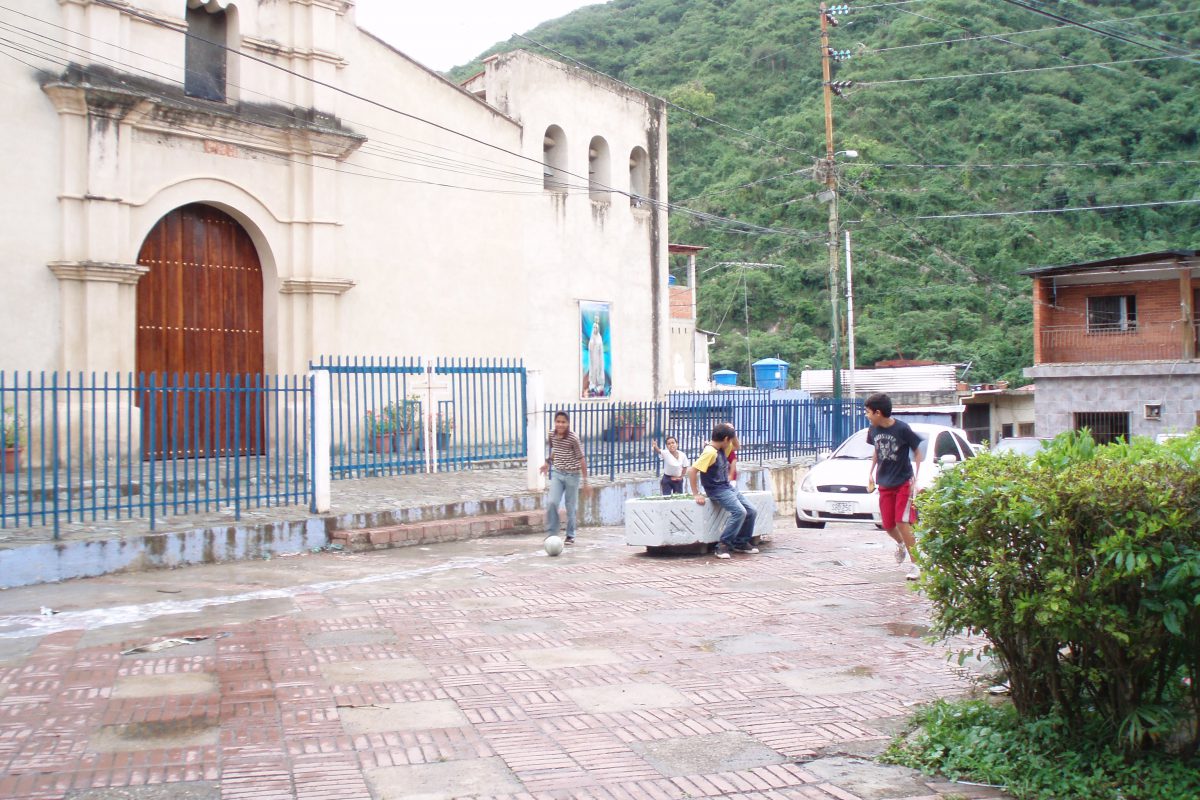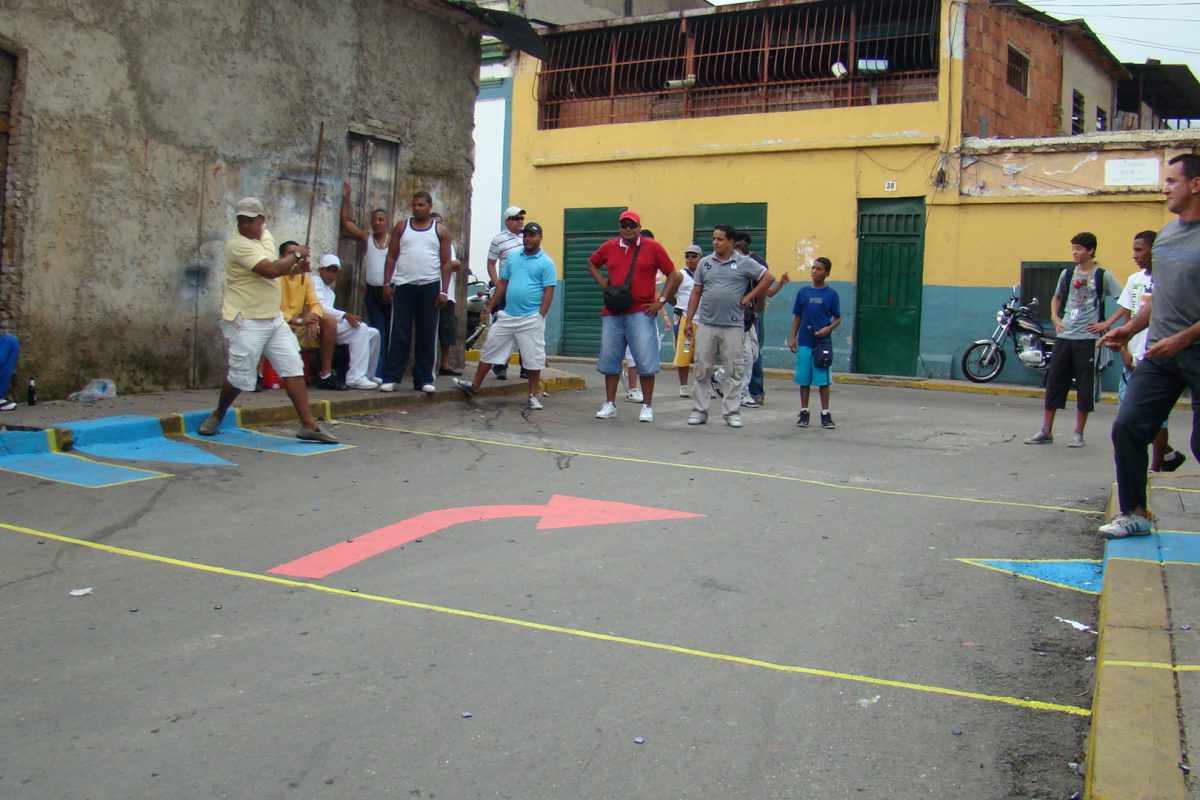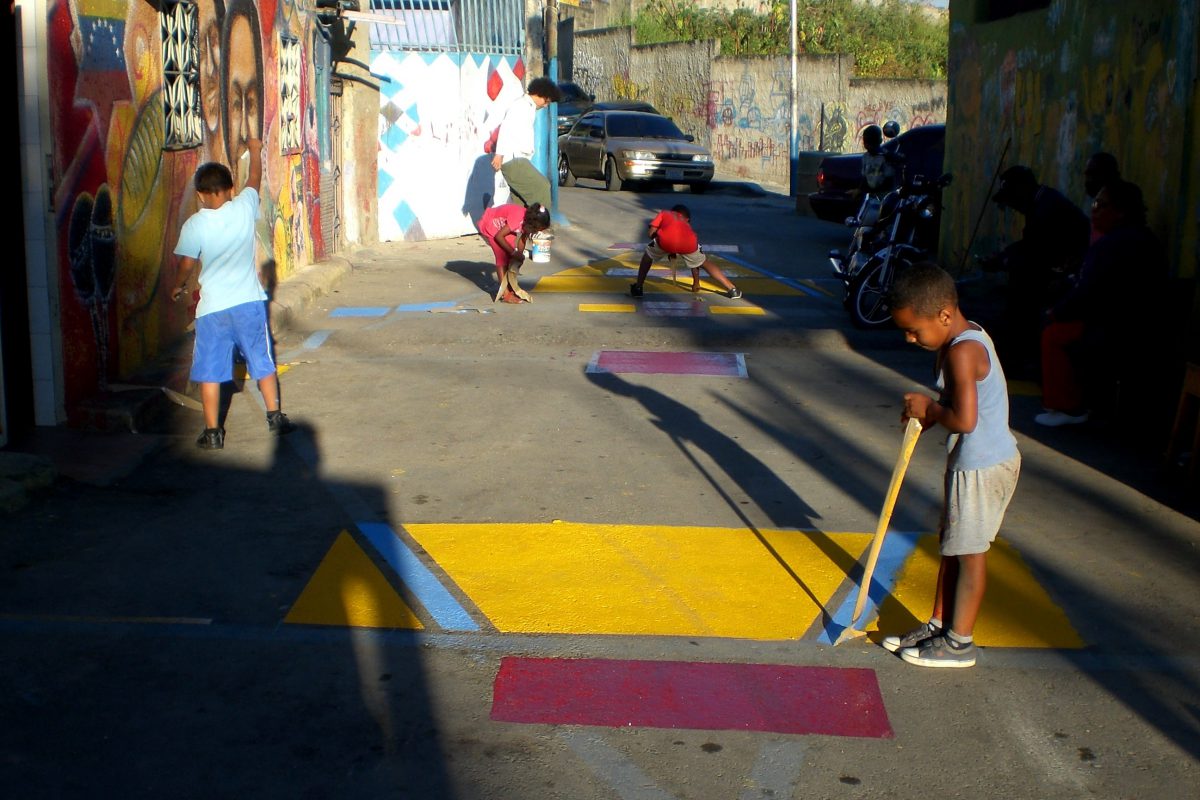
Keep up with our latest news and projects!

Latin American cities are constantly in search of generating new ideas aimed at improving social dialogues and opportunities among citizens. And, most of the time, the incorporation of simple actions in urban spaces is precisely what cities need to empower local communities to revive and transform their surroundings.
Street Fun is a project ideated by Liga de la Partida Urbana1, pursuing to increase children’s outside play in vulnerable areas of Caracas, where open space is limited. They use the idea of traditional street games to activate local communities through ‘participation’, understanding this term as a pedagogic tool that helps residents make decisions collectively for positive change.
The parish of Macarao, located in the southwest of Caracas, was the chosen scenario to implement the project. Severe problems are visible in the area, including violence, poverty and inadequate healthcare and infrastructures. Housing is vulnerable to natural disasters and despite the fact open space is scarce, it is immensely valued for social life to unfold. The population of children and teenagers is particularly high and unclaimed spaces such as narrow streets, alleyways and stairways become nodes of uncertainty, where unexpected encounters evolve.
The local plaza Bolivar, located in the historical part of Macarao, was the selected setting to implement the project as it was an open space where kids usually play and spend time.
 Children of Macarao playing on the plaza
Children of Macarao playing on the plaza
Before any intervention, it is vital to observe relationships, identify places and talk to children. Then, if kids are enthusiastic about the idea of ‘Street fun’, the project is discussed with the community leaders of the local communal councils; and if there are no inconveniences, a day to intervene is agreed. It is from that moment when a relationship of trust2 between the collective and locals is made.
The day of the intervention, a group of kids between ages 6 and 10 collectively decided to spatialise the traditional Venezuelan game, fusilao, in one side of the square. LPU provided cans of paint, tape and brushes to children so they could draw geometric shapes and lines on the ground, turning the selected space into an impromptu game board. Children set up their own rules, deciding where to draw, how big the panel would have to be, and which colours would be used.
By pigmenting the surface of the plaza, a precious area was created, becoming the spot where children’s rules allowed for socialising outside the parameters which are socially imposed; kids spatialised their own game and became the real placemakers, deciding not only the rules but also the representation of the game.
After the intervention, the square became a valued urban space both by kids and grown-ups, who showed their appreciation by keeping the area clean even when there were no kids playing.
 Street fun project implemented in La Pastora, drawing a ‘field’ to play a traditional street game called ‘Chapita’
Street fun project implemented in La Pastora, drawing a ‘field’ to play a traditional street game called ‘Chapita’
In Street Fun, both the player and the observer are converted into urban actors, being not only the action of playing the relevant part but the appropriation of the space and the socialisation among children and adults.
Besides, these temporal interventions allow to create and recover neglected spaces using inexpensive solutions that are usually denied in conventional spaces, going beyond the rules imposed by city authorities.
 Intervention in La Ceiba, a neighbourhood of San Agustín, with a colourful painted hopscotch in one of the alleys.
Intervention in La Ceiba, a neighbourhood of San Agustín, with a colourful painted hopscotch in one of the alleys.
As a result, these actions become a genuine driver of social change, create collective identities and promote a sense of belonging at the street level. Whereas the game becomes the key to engage with others, exchange ideas and create unconventional group dynamics, the paint adds colour and imagination to everyday spaces. The combination of both elements becomes a means of rediscovering the space through creative social interaction working towards the well-being of the neighbourhood.
Lack of maintenance –normally caused by tropical rains- and community budget are the main constraints of Street Fun. The project relies on enabling community members to implement self-initiated actions collectively without outside help, thus the majority of developed interventions tend to fall into neglect.
Nowadays, street games are at long-term risk because children are denied the right to play at certain spaces and some adults prefer to keep kids in protected areas. Street Fun allows children to participate collectively in decision making, even become city changers, and contributing to making their city a better place to live in.
This article belongs to a series of stories about the city at eye level for kids! You can access the full book online in PDF or pre-order your hardcopy to be delivered to your home.
Get your book here